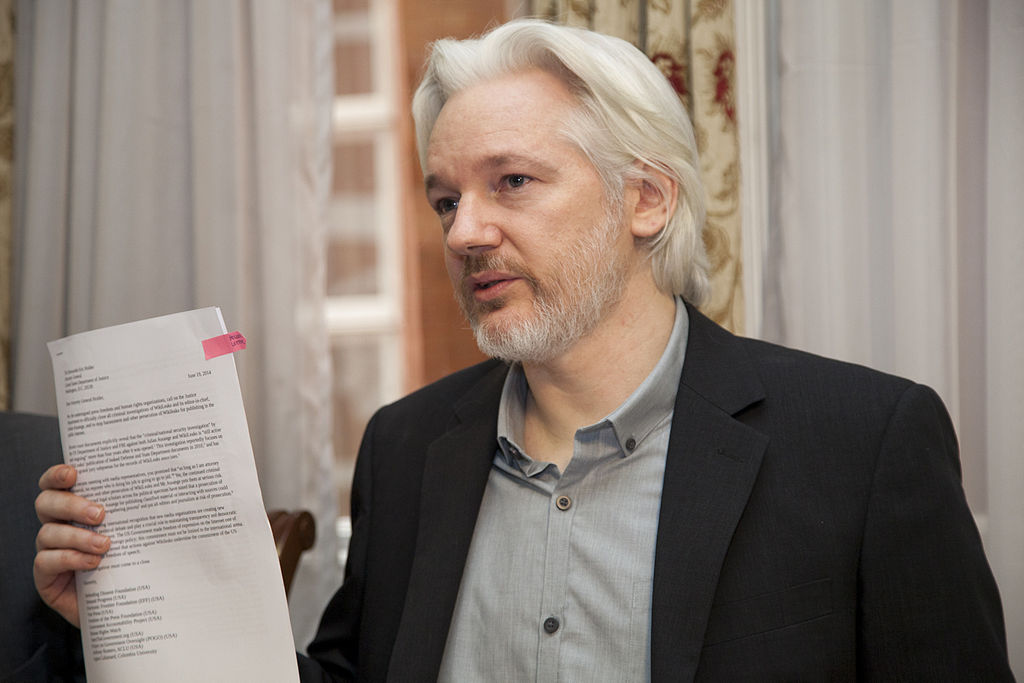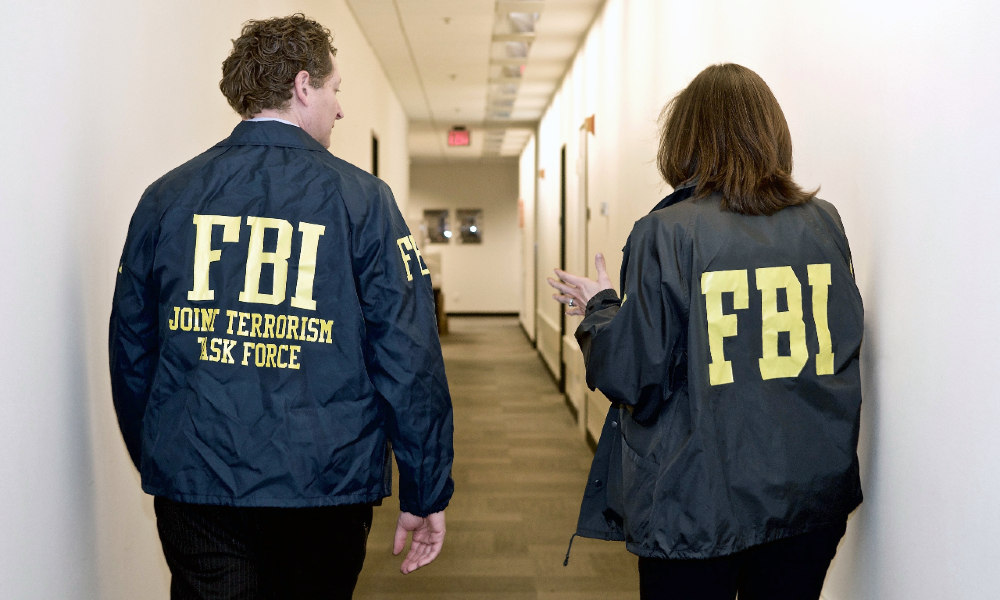Why It Matters If Trump Knew About Stone's Contacts with WikiLeaks
According to this prepared statement of former Trump lawyer and confidant Michael Cohen released by Politico and other news outlets, Cohen is prepared to testify before Congress today under oath that Donald Trump: “[W]as a presidential candidate who knew that Roger Stone was talking with Julian Assange

Published by The Lawfare Institute
in Cooperation With

According to this prepared statement of former Trump lawyer and confidant Michael Cohen released by Politico and other news outlets, Cohen is prepared to testify before Congress today under oath that Donald Trump: “[W]as a presidential candidate who knew that Roger Stone was talking with Julian Assange about a WikiLeaks drop of Democratic National Committee emails.”
Whether this statement holds up as true will depend on several things. First, it will depend on whether Cohen has any evidence backing up his claim. Members of the House oversight committee will want to explore whether he has any text messages, audio files or other corroborating evidence backing up this statement. They will also want to determine whether he can recommend to the committee any other witnesses who can corroborate his account. Second, it will depend on how credible he appears before the committee in his appearance today. Does he come off as someone truly remorseful and full of regret for having been loyal to a corrupt individual and enterprise for a substantial portion of his professional career? Or does he present as someone out to get his former boss in order to aid his own position going forward?
But more importantly: Assuming that Cohen’s statement is true, why does it matter?
It matters because WikiLeaks has a long and documented history of engaging in activities damaging to U.S. national security.
Verification that candidate Trump knew what was going on behind the scenes with Stone’s communications with WikiLeaks about the release of information obtained through the hack of the Democratic National Committee (DNC) may explain a whole lot. It may explain, in part, why the candidate made favorable statements regarding Russia throughout the campaign. Most significantly, it may explain why, in July 2016, candidate Donald Trump openly called for Russia’s assistance in his infamous, “Russia, if you’re listening I hope you’re able to find the 30,000 emails that are missing” statement.
This statement was alarming—to put it mildly—to anyone who had previously worked on counterintelligence matters. Cohen’s confirmation that Trump knew Stone was communicating with WikiLeaks explains this and other statements candidate Trump made at the time. But more than just confirming what was going on behind the scenes, the fact that Trump knew and, one can presume, either implicitly or explicitly blessed the coordination or communication with WikiLeaks matters because WikiLeaks is, according to the current secretary of state when he was the director of the CIA: “a non-state, hostile intelligence service often abetted by state actors, like Russia.”
Pompeo made this statement in April 2017, presumably based on intelligence information he obtained shortly after becoming director of the CIA. I previously laid out additional breadcrumbs the intelligence community has been dropping publicly about its understanding of WikiLeaks, here.
Based on the information available publicly so far, I am inclined to think that, even if Michael Cohen’s statement is true, the attenuated chain between Trump, Stone and Assange may be stretched too thin to establish criminal charges against Trump or campaign officials for the DNC intrusion itself. In other words, even if true, it does not yet appear that Trump himself could be implicated in the criminal conspiracy to hack the DNC. More facts are required to make that leap.
However, Michael Cohen’s imminent allegation alone (who is a witness in a position to know who has been confirmed by the special counsel’s office as having provided credible information to aid their investigation) is that the president knew that Stone, an adviser spanning decades, was communicating with WikiLeaks about activities in support of his campaign.
The information that a presidential candidate, now president, had knowledge of this communication or coordination and either allowed or consented means that he put his political ambitions over the national security of the United States of America. He worked, or allowed his surrogates to work, with a “non-state, hostile intelligence service.”
Moreover, no defender of the president’s or anyone involved in the campaign over the summer of 2016 can credibly claim that they did not know WikiLeaks was engaged in activity contrary to U.S. national security interests. Although Pompeo’s statement went further than prior intelligence chiefs and was not until April 2017 (after Trump was in office), there was already a sufficient public record revealing WikiLeaks activity as extremely harmful to U.S. national security interests. Dating all the way back to 2010, WikiLeaks facilitated the public disclosure of reams of sensitive classified documents and information from the unauthorized disclosure by Chelsea Manning. This information was in the public domain. WikiLeaks was also involved behind the scenes in certain activities related to Edward Snowden’s voluminous unauthorized disclosures. This, too, in the public domain. And Trump’s national security adviser throughout the campaign and short-lived national security adviser Michael Flynn would have been well aware of WikiLeaks and its activities. Here’s what then-Defense Intelligence Agency (DIA) chief Michael Flynn included in his threat assessment of 2014: “DIA is leading an Information Review Task Force to examine grave damage caused to the Department of Defense equities and U.S. national security as a result of the unauthorized NSA disclosures.”
Moreover, since the president has been in office, WikiLeaks has continued its activities of facilitating the release of information damaging to U.S. national security interests, including the release of sensitive CIA hacking tools. As a result, even if one were to believe that the Trump campaign was ignorant of WikiLeaks’s role in damaging U.S. security, the Trump administration is presumably fully aware of what WikiLeaks is and does and has done. Which means that if the president has hidden his knowledge of communications his campaign was having with WikiLeaks or what his political surrogates were doing in the summer of 2016, he has actively thwarted what are likely ongoing counterintelligence investigations related to WikiLeaks and its role in facilitating the criminal acquisition and/or unauthorized release of years’ worth of highly sensitive and classified information.
I wrote on this site in April 2018 that the intelligence community should release publicly, consistent with its responsibilities, what it knows about WikiLeaks in order to assist the public’s understanding of why it is not a benign entity. The public’s understanding of what it is learning would be enhanced by credible information distinguishing WikiLeaks from legitimate journalistic enterprise, a territory it exited long ago, if it ever was even there. There is important context missing from the public’s understanding of why it matters that an American political campaign engaged with a foreign entity that has spent years degrading U.S. intelligence capabilities and exposing sensitive information. The intelligence community presumably has not done so because there is either an ongoing counterintelligence investigation and/or there are ongoing criminal proceedings that have active investigative equities.
But as we watch Michael Cohen testify today that an American presidential candidate knew a longtime political adviser communicated or coordinated with WikiLeaks, we need to keep in mind that there is a deeper story here. Senior intelligence overseers in Congress likely know it. The rest of Congress and the public need to, and soon.





